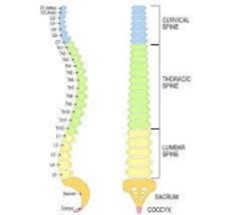A nurse is teaching the family of an older adult client who has a new diagnosis of dementia. Which of the following statements should the nurse include in the teaching?
"Dementia is characterized by a sudden onset of confusion."
"Dementia can be triggered by a high fever or dehydration."
"An altered level of consciousness is associated with dementia."
"The signs of dementia are progressive and irreversible."
The Correct Answer is D
Choice A Rationale: Dementia is not characterized by a sudden onset of confusion. It is a gradual and progressive condition.
Choice B Rationale: Dementia can be triggered or worsened by factors like infections, but it is not primarily characterized by a high fever or dehydration.
Choice C Rationale: An altered level of consciousness is not typically associated with dementia but may occur in acute delirium.
Choice D Rationale: The nurse should explain to the family that dementia is a chronic condition that affects the brain and causes cognitive impairment, memory loss, and behavioral changes. The nurse should also inform the family that dementia is not caused by a single factor, but by a combination of genetic, environmental, and lifestyle factors. The nurse should emphasize that dementia is not a normal part of aging, and that it has different stages and types.
Nursing Test Bank
Naxlex Comprehensive Predictor Exams
Related Questions
Correct Answer is C
Explanation
Choice A Rationale: Quadriplegia is a type of paralysis that affects all four limbs and the trunk, usually caused by an injury to the cervical spine (C1-C8).
Choice B Rationale: Incomplete loss of function refers to the extent of injury and whether some neurological function remains, not the level of injury.
Choice C Rationale: CA injury refers to cervical spine injury, which is the most common level of spinal cord injury.
Choice D Rationale: Hyperextension, like other mechanisms of injury (such as compression, flexion, or flexion-rotation), can contribute to spinal cord injury but does not define the level of injury.

Correct Answer is B
Explanation
Choice A Rationale: Using antipsychotics around the clock is not an appropriate approach for managing Alzheimer's disease and may have adverse effects.
Choice B Rationale: "She will not be left home alone" indicates effective teaching because it emphasizes the importance of supervision and safety for a client with Alzheimer's who may be at risk of wandering or accidents.
Choice C Rationale: Applying a restraint to only one wrist is not an appropriate or effective strategy for managing Alzheimer's-related behaviors and may have ethical concerns.
Choice D Rationale: Placing rugs in the bathroom may create tripping hazards for a client with Alzheimer's. Effective teaching should focus on removing hazards rather than adding them.
Whether you are a student looking to ace your exams or a practicing nurse seeking to enhance your expertise , our nursing education contents will empower you with the confidence and competence to make a difference in the lives of patients and become a respected leader in the healthcare field.
Visit Naxlex, invest in your future and unlock endless possibilities with our unparalleled nursing education contents today
Report Wrong Answer on the Current Question
Do you disagree with the answer? If yes, what is your expected answer? Explain.
Kindly be descriptive with the issue you are facing.
